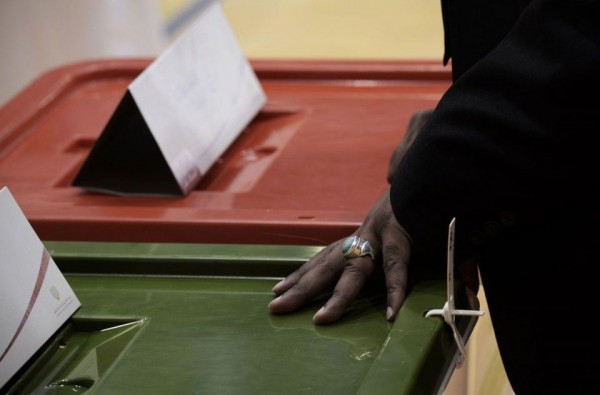What Do the Bahraini Authorities Have in Store for Upcoming Elections?

2018-10-02 - 11:24 p
Bahrain Mirror (Exclusive): Only two months separate us from the 2018 elections. It's the sixth session since the establishment of the Parliament (National Assembly) in 2001. The Bahraini public opinion, both opposition and pro-government, agrees that the parliament in its present form is only a tool in the hands of the authorities for passing whatever it pleases. Perhaps every Bahraini can agree with the words spoken by a Bahraini citizen in a gathering regarding the parliament: "What a joke this Assembly is! They have established it just as an image for the world public opinion no more and no less. I'm not with the Wefaq party, but when the Wefaqis were in parliament, it was indeed a parliament. Now, they all at the beck and call of the government. No one says no to the government. I asked one of the loyal MPs who told me that we cannot do anything "
Are the authorities in Bahrain already bothered by this image they portray regarding the Bahraini parliament, which cannot be denied anyone? What do the authorities have in store for Bahrainis to participate in the upcoming elections? Do have something prepared to at least in a way make Bahrainis think that there is something anticipated or a possible change for the better.
In fact, there's nothing. On the contrary, all developments of events tell Bahrainis to: expect the worst.
On the level of "sucking the blood" of the Bahraini citizen, Bahrainis await in the coming days an extraordinary session to be held by the outgoing National Assembly after referring the Value Added Tax (VAT) for approval. Bahrainis will have to pay an additional tax on goods and services amounting to 5%. It's a rate that analysts believe will gradually increase whenever the authority decides to due to the accumulation of its debts. This comes amid the authorities grip over all sources of public income, and monopoly of state funds without accountability and supervision. Taxation and further taxation is what the authorities are promising Bahrainis in the next parliament.
In terms of the deteriorating political situation, the authorities were the first to end the "Call of Bahrain" initiative before it came to light, an initiative that was led by national political, economic and social elites renowned in Bahraini society community, who have different views from both Shia and Sunni sects.
What did this initiative call for to be eradicated this quickly?
All that is called for is keeping calm and "encouraging the start of a process of national reconciliation" as well as "working on getting the country out of the throes of a smothering political crisis, sparing the country an economic crisis that could destroy the livelihoods of citizens." This initiative aimed at "having everyone contribute, institutions, citizens, officials, politicians, economic, social and cultural elites and others, to mobilizing all national efforts to achieve the minimum required and necessary consensus to launch a comprehensive process of national reconciliation, followed by concrete reform steps."
This initiative did not set any conditions. It only hoped to open the closed door during these times. However, as soon as the authorities sensed the news of its circulation among the Bahraini elite, and that it was signed to that time by 60 people, they wielded their thick whip, made use of their media tools and venomous journalist pens, incited their obedient MPs, and doubted the patriotism of the signatories. The Parliament Speaker Ahmad Al-Mulla then emerged shouting: "There is no place for the rule of Al-Faqih [Iran] or its sympathizers in Bahrain," although most of the initiative's signatories were non-Shiites and non-Islamists in general. This was followed by other pens and newspapers for days on end in the same context.
This is how the authorities succeeded in killing the initiative even before its news spread among the people. The last thing that concerns the authorities is solving the escalating crisis, which exacerbated the country's economic and financial crises, let alone the massive public debt.
Meanwhile on the level of expressing opinion and faith, the Shiite religious occasion of Ashura this year (1440 AH) witnessed great escalation, as preachers and eulogy reciters were targeted particularly. During the last five days of the Ashura season, 14 preachers, 3 administrators of Ma'tams and processions and 3 eulogy reciters were summoned, nine of whom were detained for 15 days pending investigation. Some were accused of "inciting hatred against the regime for terrorist purposes" and others were accused of "committing offenses that constitute an abuse of the Ashura season." The authorities have caused extreme tensions and rage during this year's Ashura season, although the season began with a calmness that Bahrainis have not witnessed since the eruption of protests in 2011.
These are examples of what the authorities have prepared for Bahrainis after the upcoming elections: More taxes, more stealing from the citizens' pockets, destroying any initiative that might call for calmness or a solution to the miserable situation, more suppression of opinion and speech, and raising charges of "incitement of hatred against the regime for the terrorist purpose" against anyone who expresses an opposing opinion.
And the next question is: What do Bahrainis expect from the next parliament other than a thick whip?
- 2024-05-08Bahrain: One Step Forward, Two Steps Back
- 2024-05-06Ali Haji May Face Imprisonment Again on Charges of "Penetrating a Restricted Area"
- 2024-05-01Was the Resumption of Flights with Iraq Expected?
- 2024-04-20Recent Releases in Bahrain: Something Has Changed
- 2024-04-04Return of Repression to Bahrain's Streets with the Crown Prince and Prime Minister's Blessing